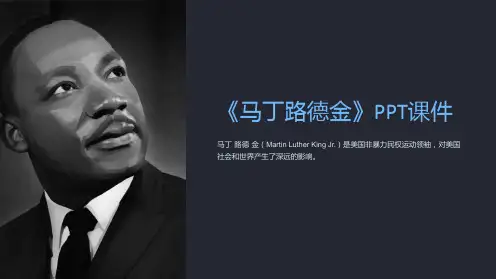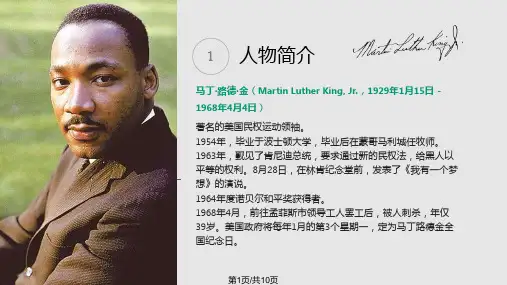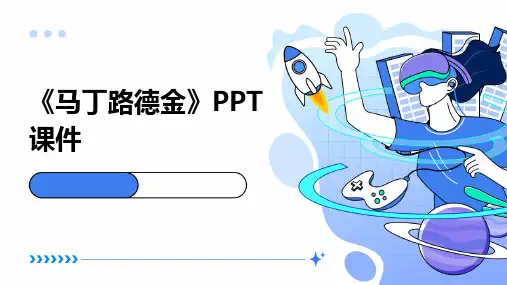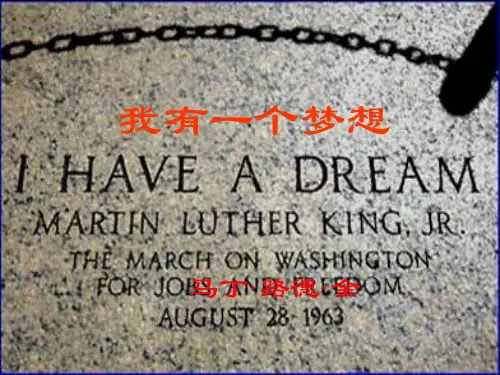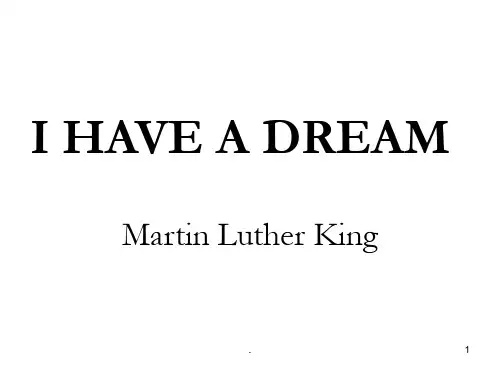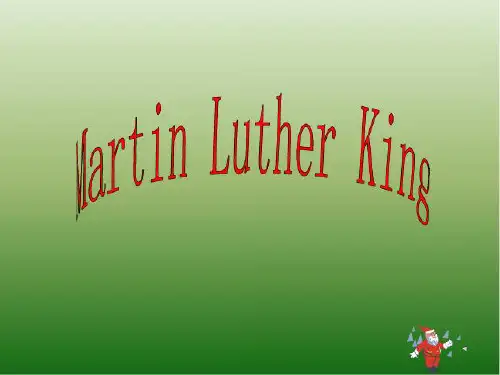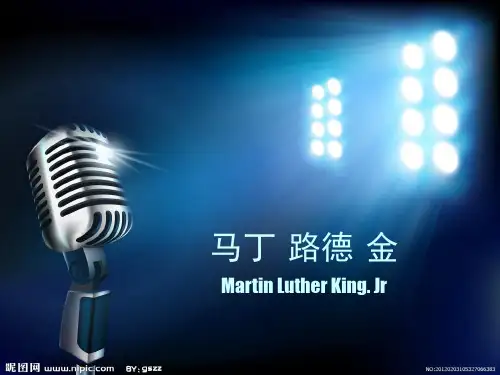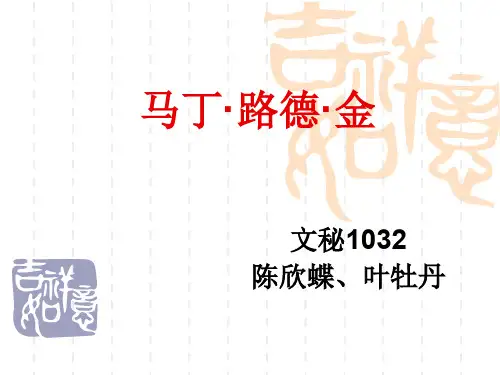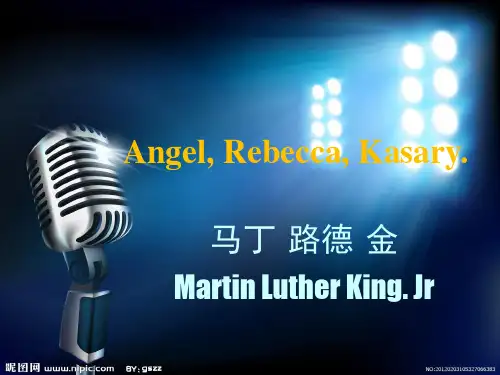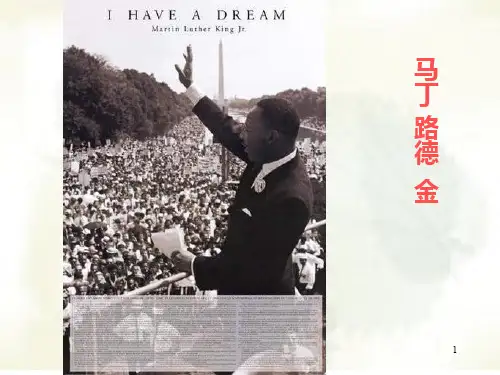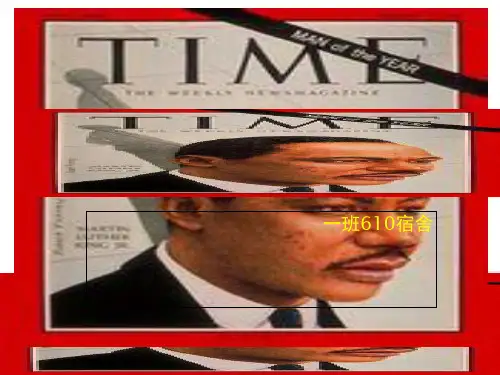- 1、下载文档前请自行甄别文档内容的完整性,平台不提供额外的编辑、内容补充、找答案等附加服务。
- 2、"仅部分预览"的文档,不可在线预览部分如存在完整性等问题,可反馈申请退款(可完整预览的文档不适用该条件!)。
- 3、如文档侵犯您的权益,请联系客服反馈,我们会尽快为您处理(人工客服工作时间:9:00-18:30)。
My first encounter with deeper meanings of populism came when I was nineteen, working as a field secretary for the Southern Christian Leadership Conference (SCLC) in St. Augustine, Florida in 1964. One day I was caught by five men and a woman who were members of the Ku Klux Klan. They accused me of being a "communist and a Yankee." I replied, "I'm no Yankee – my family has been in the South since before the Revolution. And I'm not a communist. I'm a populist. I believe that blacks and poor whites should join to do something about the big shots who keep us divided." For a few minutes we talked about what such a movement might look like. Then they let me go. When he learned of the incident, Martin Luther King, head of SCLC, told me that he identified with the populist tradition and assigned me to organize poor whites.
When he was a student at Boston University, King often visited Thurman, who was the dean of Marsh Chapelied Thurman's writings, has stated, "I don't believe you'd get a Martin Luther King, Jr. without a Howard Thurman".
Civil rights leader, theologian, and educator Howard Thurman was an early influence on King. A classmate of King's father at Morehouse College, Thurman mentored the young King and his friends. Thurman's missionary work had taken him abroad where he had met and conferred with Mahatma Gandhi.
King was assassinated on April 4, 1968, in Memphis, Tennessee. He was posthumously awarded the Presidential Medal of Freedom in 1977 and Congressional Gold Medal in 2004; Martin Luther King, Jr. Day was established as a U.S. national holiday in 1986.
Populist tradition and Black populism
Harry C. Boyte, a self-proclaimed populist, field secretary of the Southern Christian Leadership Conference and white civil rights activist describes an episode in his life that gives insight on some of King's influences:
achievements
In 1964, King became the youngest person to receive the Nobel Peace Prize for his work to end racial segregation and racial discrimination through civil disobedience and other nonviolent means. By the time of his death in 1968, he had refocused his efforts on ending poverty and the Vietnam War, both from a religious perspective.
churches.[1] A Baptist minister, King became a civil rights activist early in his career. He led the 1955 Montgomery Bus Boycott and helped found the Southern Christian Leadership Conference in 1957, serving as its first president. King's efforts led to the 1963 March on Washington, where King delivered his "I Have a Dream" speech. There, he raised public consciousness of the civil rights movement and established himself as one of the greatest orators in U.S. history.
In March 1955, a fifteen-year-old school girl, Claudette Colvin, refused to give up her bus seat to a white man in compliance with the Jim Crow laws. King was on the committee from the Birmingham African-American community that looked into the case; Edgar Nixon and Clifford Durr decided to wait for a better case to pursue. On December 1, 1955, Rosa Parks was arrested for refusing to give up her seat. The Montgomery Bus Boycott, urged and planned by Nixon and led by King, soon followed.The boycott lasted for 385 days, and the situation became so tense that King's house was bombed. King was arrested during this campaign, which ended with a United States District Court ruling in Browder v. Gayle that ended racial segregation on all Montgomery public buses.
Civil-Rights Heroes
Martin Luther King
personage introduction
brief introduction
Martin Luther King, Jr. (January 15, 1929 – April 4, 1968) was an American clergyman, activist, and prominent leader in the African American civil rights movement. His main legacy was to secure progress on civil rights in the United States, and he has become a human rights icon: King is recognized as a martyr by two Christian
Thurman
Gandhi and Rustin
Inspired by Gandhi's success with non-violent activism, King visited Gandhi's birthplace in India in 1959, with assistance from the Quaker group the American Friends Service Committee. The trip to India affected King in a profound way, deepening his understanding of non-violent resistance and his commitment to America's struggle for civil rights. In a radio address made during his final evening in India, King reflected, "Since being in India, I am more convinced than ever before that the method of nonviolent resistance is the most potent weapon available to oppressed people in their struggle for justice and human dignity. In a real sense, Mahatma Gandhi embodied in his life certain universal principles that are inherent in the moral structure of the universe, and these principles are as inescapable as the law of gravitation." African American civil rights activist Bayard Rustin, who had studied Gandhi's teachings, counseled King to dedicate himself to the principles of non-violence, served as King's main advisor and mentor throughout his early activism, and was the main organizer of the 1963 March on Washington.Rustin's open homosexuality, support of democratic socialism, and his former ties to the Communist Party USA caused many white and African-American leaders to demand King distance himself from Rustin.
